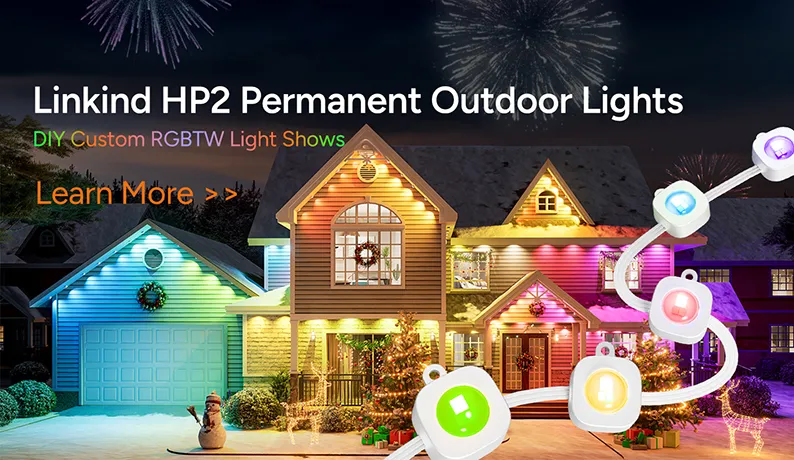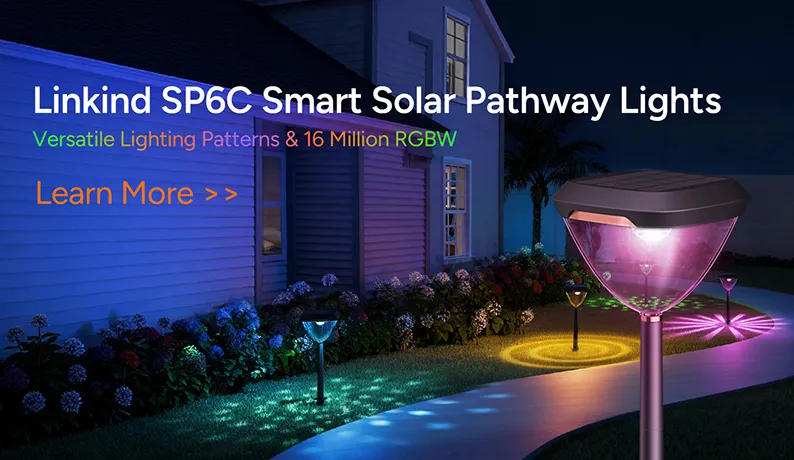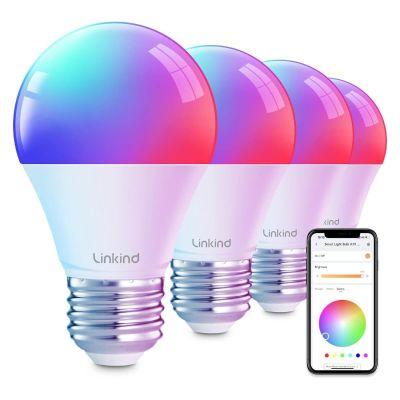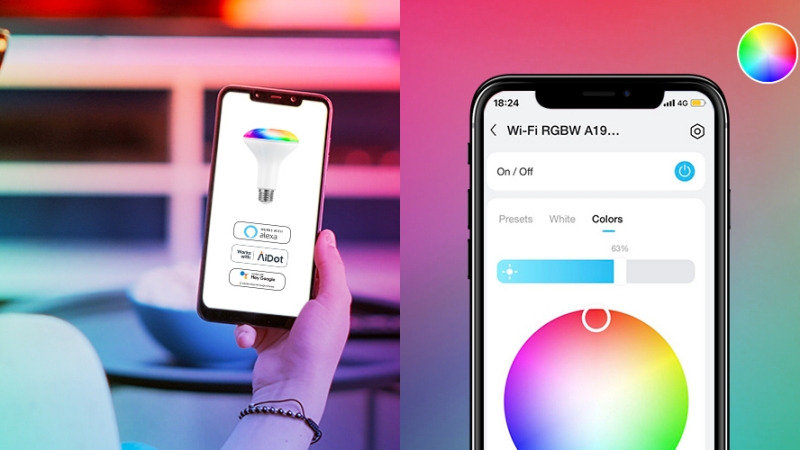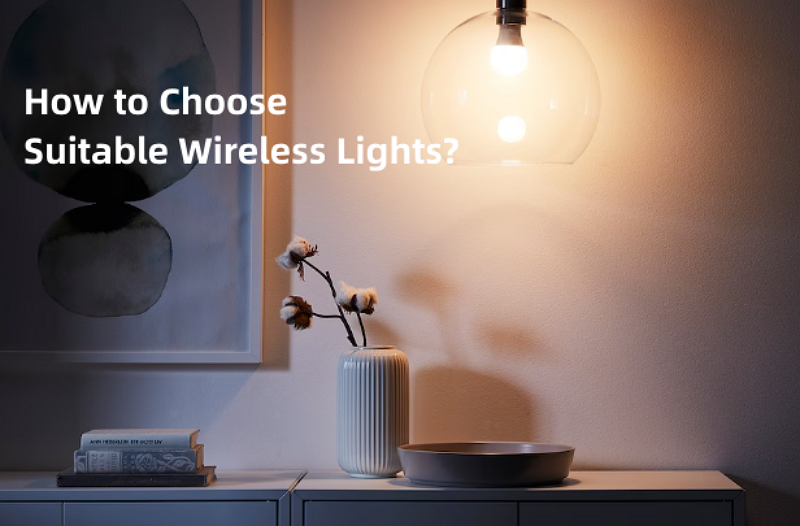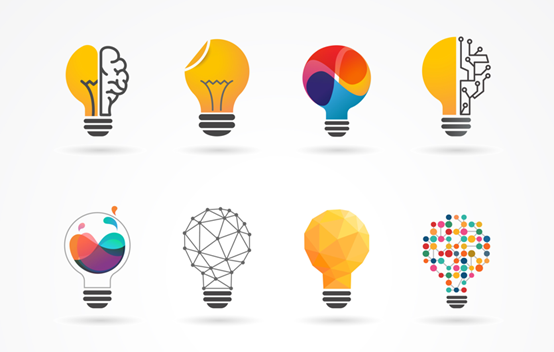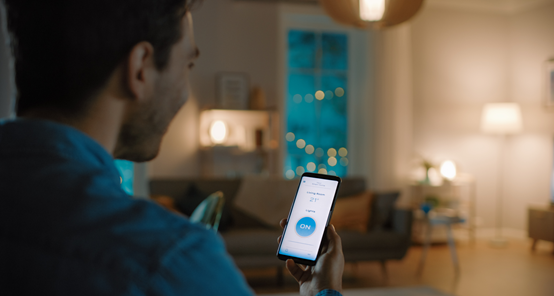With advancements in technology, our homes have become smarter, and so have our appliances. Smart light bulbs are becoming increasingly popular in households due to their convenience and functionality. They are designed to be controlled remotely using a mobile device or a smart assistant such as Alexa or Google Home. While these bulbs offer a range of features that make them attractive to consumers, there is one big question that surrounds the mind of consumers – are smart light bulbs energy efficient? Here in this blog, we will explore this question. If you want to know the answer, keep reading for all the details.
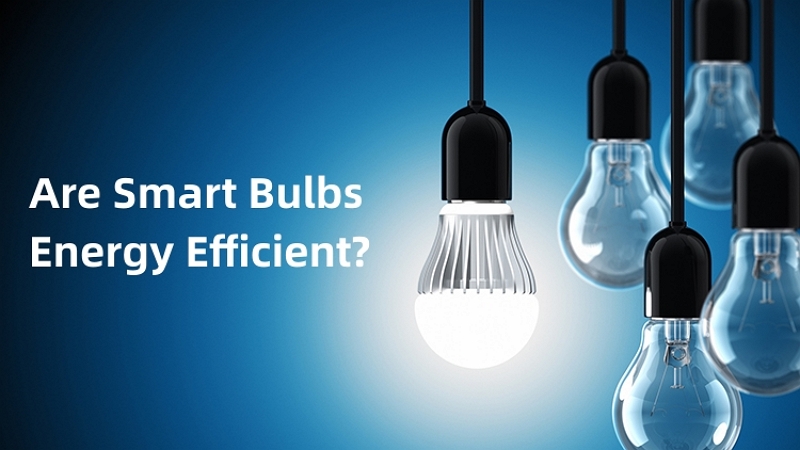

Part 1. Are Smart Bulbs Energy Efficient?
The hot question here is – are smart light bulbs energy efficient? Do smart bulbs save energy?
If these questions are running through your mind, you can rest assured as they are cost-saving and sustainable. But are smart bulbs still energy efficient enough when compared to other options? Here is a comparison of smart bulbs with some other common lighting options used in homes to address your question.
1.1 Smart Light Bulbs VS Incandescent Bulbs
Smart bulbs have a considerable advantage over traditional incandescent bulbs. They are energy-efficient lighting solutions designed to consume less power than traditional incandescent bulbs. Smart bulbs utilize LED technology, which is known for its energy efficiency and long-lasting nature. They use 80-90% less energy, meaning about 80% of the energy consumed by smart bulbs is converted into light.
Compared to incandescent bulbs, smart bulbs take the lead in utilizing energy efficiently. This is because smart bulbs offer additional features, such as dimming and color control, which can be used to reduce energy consumption. For example, if you dim a smart bulb to 50%, it will use half as much energy as it would at full brightness. Incandescent bulbs do not have this feature.
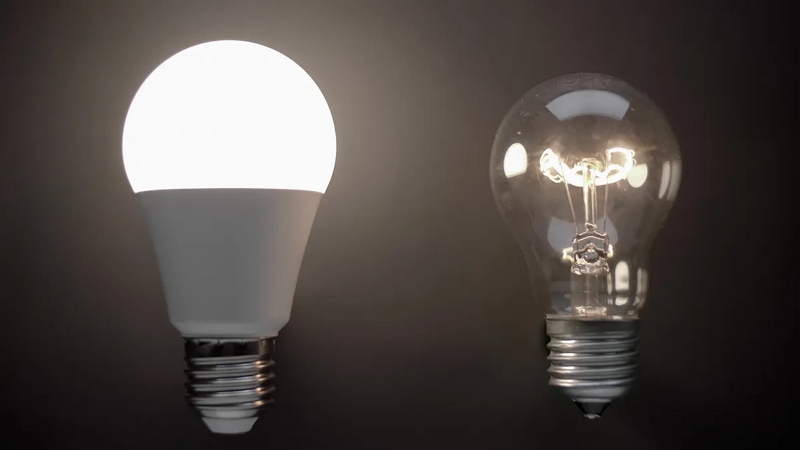

1.2 Smart Light Bulbs VS Regular LED Bulbs
Are smart light bulbs energy efficient even more than regular LED bulbs?
Smart bulbs and regular LED bulbs both use LED technology and are energy-efficient alternatives to traditional incandescent bulbs. However, smart bulbs have additional features and capabilities that regular LED bulbs do not have. Smart bulbs can be controlled remotely through a mobile app, voice commands, or smart home assistants like Amazon Alexa or Google Home. They can also change color, brightness, and temperature and even be programmed to turn on and off at specific times.
While smart bulbs may be more expensive than regular LED bulbs, they offer convenience, flexibility, and the ability to customize lighting settings to meet individual preferences and needs. However, the difference in energy consumption is likely to be minimal, and both types of bulbs are significantly more energy-efficient than incandescent bulbs.
Part 2. Which Colour LED Consumes Less Power?
When answering the question – do smart bulbs save energy – we cannot miss that color factor.
The color of LED can affect its energy consumption. LED lights come in different colors, each with a different energy consumption level. The amount of energy a LED bulb consumes depends on its color temperature, measured in Kelvin (K).
For instance, cool white LED lights with a color temperature of 6000K consume more energy than warm white LED lights with a color temperature of 3000K. This is because the cooler the color temperature is, the bluer the emitted light is , which requires more energy to produce.
So, yes, the color factor affects your question – are smart bulbs energy efficient? To save energy, it's a good idea to choose warm white or soft white light color with lower color temperature. Such choice is not only more energy-efficient, but also creates a warm and cozy atmosphere at your home, which is ideal for living spaces and bedrooms.
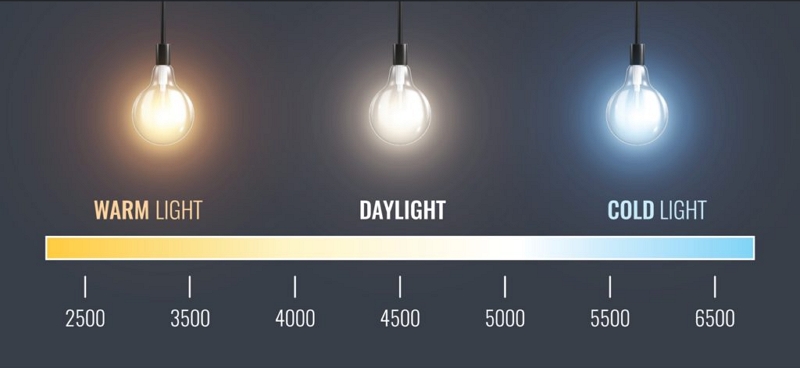

For instance, cool white LED lights with a color temperature of 6000K consume more energy than warm white LED lights with a color temperature of 3000K. This is because the cooler the color temperature is, the bluer the emitted light is , which requires more energy to produce.
So, yes, the color factor affects your question – are smart bulbs energy efficient? To save energy, it's a good idea to choose warm white or soft white light color with lower color temperature. Such choice is not only more energy-efficient, but also creates a warm and cozy atmosphere at your home, which is ideal for living spaces and bedrooms.
Part 3. Do Smart Bulbs Use Electricity When Off?
One more parallel query pops up when considering the energy question – do smart bulbs use energy when they are switched off?
The answer is yes, but the amount of electricity they use is negligible. Like many electronic devices, smart bulbs use a small amount of standby power even when turned off. However, this standby power consumption is typically less than 1 watt, which is a negligible amount of energy. To minimize standby power consumption, you can use a smart plug or power strip to completely turn off your smart bulbs when not in use.
Part 4. Some Energy-Saving Tips For Smart Light Bulbs
Now that we've known smart bulbs are energy efficient, let's move on to some tips on using smart bulbs. While smart bulbs are generally more energy-efficient than traditional incandescent bulbs, a few tips can save even more energy. Here is a list of what you can do:
- Use lower-wattage bulbs: choose smart bulbs with lower wattage to save energy.
- Use motion sensors: install motion sensors that turn off your smart bulbs when no one is in the room.
- Use timers: set timers to turn off your smart bulbs when you don't need them.
- Use dimmers: use dimmer switches to adjust the brightness of your smart bulbs and save energy.
- Group your bulbs: group your smart bulbs together so you can control them all at once and avoid leaving them on when you don't need them.
Part 5. The Best Energy-Efficient Smart Light Bulb in 2023
Are smart bulbs energy efficient? Yes, they are. Then is there a top option among the many choices of smart bulbs? Of course.
The AiDot Smart Light Bulb is a top choice for a smart bulb. It provides over 16 million colors, which can be customized based on different occasions. The AiDot Smart Light Bulb is also dimmable, so you can adjust the brightness to your liking and save energy. Additionally, this bulb has a lifespan of up to 25,000 hours; much longer than traditional incandescent bulbs.
The AiDot Smart Light Bulb also offers a range of smart features, including voice control, smartphone control, and compatibility with Amazon Alexa and Google Assistant. With the AiDot app, you can control your smart bulbs from anywhere, set schedules, and even create scenes that automatically adjust the color and brightness of your bulbs to match your mood or activity.
Some of the other features of this super smart light bulb include the following:
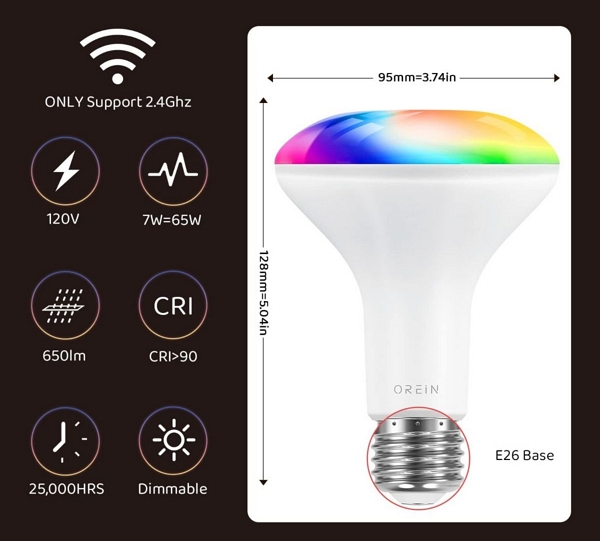

- 16 million colors: choose from a wide range of colors to suit your mood or decor.
- Adjustable brightness: dim your light from soft to cool (1800k-6500k) based on your needs
- Group control: group your smart bulbs together and control them all at once.
- Music sync: sync your smart bulbs with your music and create a party atmosphere.
- Sunrise/sunset mode: set your smart bulbs to gradually turn on or off to simulate sunrise or sunset.
- Energy-saving feature: provide 7W equivalent to 65W brightness, saving consumption up to 85% without losing brightness (650LM) or color quality.
[Bonus Now]: Here is an exclusive coupon code only found in blog posts. Save it now (AiDotBG01) and get 10% off at our AiDot mall!
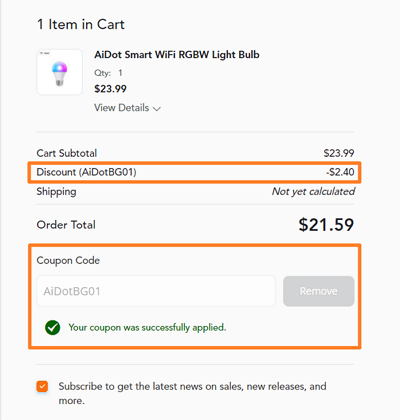

Part 6. Some FAQs About Smart Light Bulbs
1. Are smart bulbs safe?
Smart bulbs, like any other smart home devices, have the potential to be vulnerable to cyberattacks and malware. However, smart bulb manufacturers take security seriously and have implemented measures to keep their devices secure. This includes encryption, secure authentication, and regular software updates to fix any security vulnerabilities that may arise.
To ensure security, it is important to follow best practices such as regularly updating the device's firmware, using a strong Wi-Fi password, and creating a separate guest network for your smart home devices. Additionally, consider using a virtual private network (VPN) to add an extra layer of security when accessing your smart home devices remotely.
2. What are the disadvantages of smart lighting?
Smart lighting provides many benefits, such as energy efficiency and convenience, but there are also some disadvantages to consider. One major disadvantage is the potential security risk, as smart devices can be vulnerable to hacking and malware. Additionally, the initial cost of purchasing and installing smart lighting systems can be high, and there may be ongoing expenses for maintenance and updates. Finally, reliance on technology means that if there is a power outage or system malfunction, the lighting may not work as intended.
3. Are smart bulbs worth it?
Yes, smart bulbs are worth it for those who want to have more control over their lighting, save energy, and enhance their home's ambiance. Smart bulbs allow users to adjust the brightness, color, and temperature of their lighting with ease, and they can be controlled remotely through a smartphone app or voice assistant.
Additionally, many smart bulbs are energy-efficient and can help reduce electricity bills. Some models also come with features such as scheduling and integration with other smart home devices, adding convenience and customization to the home. Overall, investing in smart bulbs can bring numerous benefits and enhance the overall experience of living in a smart home.
Conclusion
So, are smart bulbs energy efficient? The answer is yes. Smart bulbs are generally more energy-efficient than traditional incandescent bulbs and can be just as efficient as regular LED bulbs. Using advanced technology, such as dimming, scheduling, and motion sensors, smart bulbs can further help reduce energy consumption and save on electricity bills.
With the AiDot Smart Light Bulb being one of the best options for energy efficiency in 2023, it's clear that smart lighting technology will continue to improve and provide more benefits for consumers. It is here to stay, and you must consider hopping on.
Besides the aforementioned smart light bulb, there are many other lighting products of high quality in the Aidot mall. You can visit AiDot's website to browse through our lighting solutions and choose the perfect one for your home.











